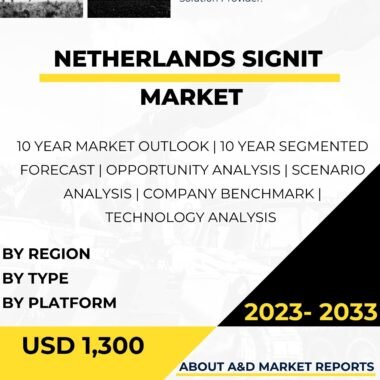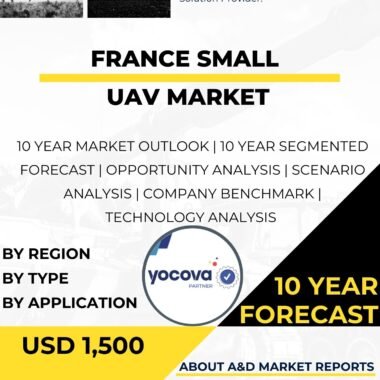Description
The Belgium small unmanned aerial vehicle (UAV) market is a significant segment within the country’s defense and aerospace industries. Small UAVs, also known as drones, play a crucial role in various military and civilian applications, including surveillance, reconnaissance, intelligence gathering, and monitoring. Belgium recognizes the importance of advanced small UAV technologies in enhancing its defense capabilities, supporting its armed forces, and facilitating civilian operations.
The primary driver for the Belgium small UAV market is the need for versatile and cost-effective aerial platforms for a wide range of applications. Small UAVs provide the ability to gather real-time aerial intelligence, monitor critical infrastructure, support disaster response operations, and enhance situational awareness on the battlefield. Belgium’s focus on small UAV technologies is driven by the need to enhance its defense capabilities, support its armed forces and security agencies, and foster innovation in aerospace and defense sectors.
Belgium’s domestic defense and aerospace industries play a significant role in the development, production, and integration of small UAV systems. Belgian companies, such as SABCA and Unifly, have expertise in UAV manufacturing and contribute to the country’s defense capabilities. These domestic capabilities foster innovation, create job opportunities, and contribute to the economic growth of the Belgium small UAV market.
Collaborations with international partners and suppliers are also significant for the Belgium small UAV market. Belgium often engages in partnerships with defense and aerospace companies from NATO member states and other allied nations to access advanced UAV technologies, benefit from joint development programs, and ensure interoperability with allied forces. These collaborations enable Belgium to leverage global advancements in small UAV capabilities, enhancing the performance, reliability, and effectiveness of its UAV systems.
Furthermore, Belgium’s participation in multinational defense initiatives influences the small UAV market. Collaboration within NATO and other international defense cooperation programs fosters interoperability, joint training exercises, and the exchange of best practices. This cooperation ensures compatibility and enhances operational effectiveness when conducting joint military or security operations with allied forces.
The Belgium small UAV market faces challenges such as technological advancements, regulatory frameworks, and privacy concerns. Technological advancements in UAV systems, including improved flight stability, longer endurance, enhanced payloads, and advanced sensor technologies, require continuous research and development efforts. The Belgium market needs to stay at the forefront of innovation to provide state-of-the-art small UAV systems that meet the evolving operational requirements and address emerging threats.
Regulatory frameworks governing UAV operations are essential for safe and responsible use of small UAVs in Belgium’s airspace. Belgium’s authorities must establish regulations that ensure compliance with safety standards, airspace management, and privacy protection. Striking a balance between enabling the benefits of small UAVs while mitigating potential risks is crucial for the growth and acceptance of the industry.
Privacy concerns related to UAV operations are a significant consideration. Belgium’s authorities and operators must adhere to privacy laws and regulations, ensuring that UAVs are used responsibly and do not infringe upon individual privacy rights. Proper safeguards and ethical practices are necessary to build public trust and acceptance of small UAV technologies.
In conclusion, the Belgium small UAV market is a significant segment within the country’s defense and aerospace industries. Advanced small UAV technologies provide critical capabilities for military operations, civilian applications, and surveillance purposes. Domestic capabilities, collaborations with international partners, and Belgium’s participation in multinational defense initiatives drive the growth and development of the small UAV market. As operational requirements evolve and technological advancements continue, the demand for advanced and effective small UAV systems is expected to increase, fostering innovation, collaboration, and economic growth within the sector.




